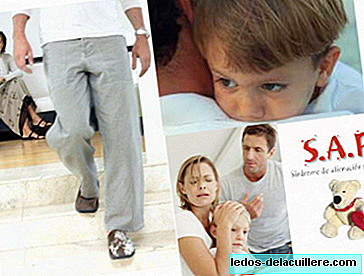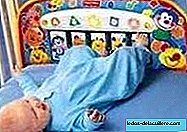
Lately we have been able to see several cases on television about the Parental Alienation Syndrome (PAS). It seems that the alert has jumped with the increase in divorces or conflicting separations, and the consequent increase in this pathological behavior, but it is not always the case, sometimes it happens between couples who are still united, but let's see what exactly it is.
The Parental Alienation Syndrome, denomination of the psychiatrist Richard A. Gardner in 1985, occurs when a parent (usually the one with custody) manipulates or attempts to manipulate the feelings of the children to put them against the other parent. But this fact is not limited exclusively to cause the rejection of the child towards the father or the mother, many times it can also affect the grandparents or other relatives. According to data from the State Confederation of Associations of Separated Fathers and Mothers, it is estimated that each year about 20,000 children dislike one of their parents because the other has instilled it.
There are three degrees of alienation, mild, moderate and acute, according to the specialist, Richard A. Gardner, each one needs a form of action or action. The syndrome can affect it in such a way that the children who suffer from it may forget how their previous family life was and not remember the good times they lived with the parent they now reject.
The SAP causes in children the feeling of pathological hatred, a distortion of reality and damage to their psychological development. It is still a form of child abuse that causes trauma and prevents a normal life, both the child and the alienated parent.
Despite this, the SAP is not yet recognized by the WHO (World Health Organization) or the American Psychological Association, but it is possible and we hope that it will be considered soon, since the judicial issue is a bit confusing.
What world do we live in? The alienating father is not aware that the greatest damage is being caused to the child?












